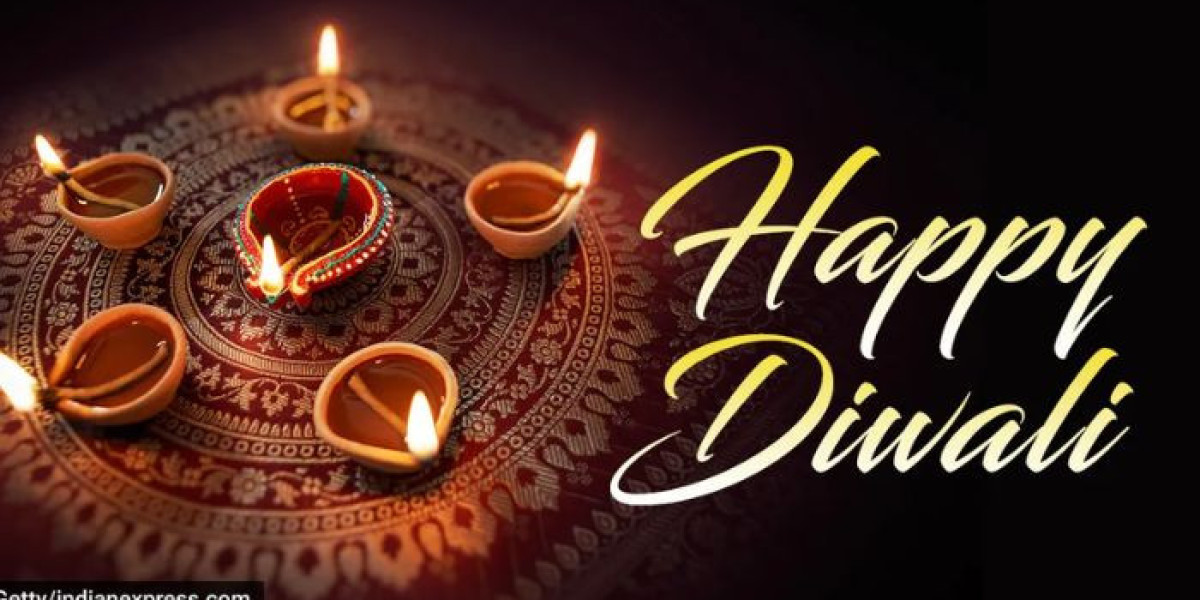Diwali, also known as Deepavali, is one of the most significant and widely celebrated festivals in India. Revered for its spiritual importance and cultural vibrancy, Diwali is often referred to as the "Festival of Lights." This five-day festival symbolizes the triumph of light over darkness, good over evil, and knowledge over ignorance. It is celebrated with immense joy and fervor across India and in various parts of the world where Indian communities reside. The festival's origins are steeped in ancient history, mythology, and tradition, making it a rich and meaningful occasion for millions of people.
Historical and Mythological Origins of Diwali
Diwali's origins are linked to several historical and mythological events, each adding a layer of significance to the festival. The most popular story associated with Diwali is from the Hindu epic, the Ramayana. It is believed that Diwali marks the return of Lord Rama, his wife Sita, and his brother Lakshmana to their kingdom of Ayodhya after a 14-year exile and the defeat of the demon king Ravana. The people of Ayodhya lit oil lamps (diyas) to celebrate their return, and this tradition has continued to symbolize the victory of good over evil.
Another significant story associated with Diwali is the tale of Lord Krishna and his victory over the demon Narakasura. According to legend, Krishna defeated Narakasura and freed 16,000 women from his captivity, a victory that is celebrated on the first day of Diwali, known as Naraka Chaturdashi.
In addition to these stories, Diwali is also linked to the worship of Goddess Lakshmi, the goddess of wealth and prosperity. It is believed that on this day, Lakshmi emerged from the ocean of milk during the churning of the ocean (Samudra Manthan). Hence, the festival is also a time for invoking the blessings of Lakshmi for wealth, prosperity, and happiness in the coming year.
The Five Days of Diwali
Diwali is celebrated over five days, each with its own unique significance and customs.
Dhanteras: The first day of Diwali is Dhanteras, a day dedicated to wealth and prosperity. People buy new utensils, gold, or silver items, as it is considered an auspicious day to make new purchases. Homes and businesses are cleaned and decorated to welcome Goddess Lakshmi, and lamps are lit to drive away negative energies.
Naraka Chaturdashi (Choti Diwali): The second day, also known as Choti Diwali, commemorates the victory of Lord Krishna over Narakasura. On this day, people wake up early, apply aromatic oils, and take ritualistic baths. This day is also marked by the lighting of diyas, bursting of crackers, and the preparation of special sweets.
Diwali (Lakshmi Puja): The third and main day of the festival is Diwali, the day when homes are illuminated with rows of oil lamps, candles, and electric lights. Lakshmi Puja is performed in the evening to invoke the blessings of the goddess. Families come together to offer prayers, exchange gifts, and enjoy festive meals. The night sky is lit up with fireworks, symbolizing the joy and celebration of the occasion.
Govardhan Puja (Padva): The fourth day of Diwali is Govardhan Puja, which commemorates the episode in the life of Lord Krishna where he lifted the Govardhan Hill to protect the people of Vrindavan from torrential rains sent by Indra, the god of rain. On this day, people prepare a large variety of vegetarian dishes and offer them to Krishna. In some parts of India, this day is also celebrated as Annakut or Padva, symbolizing the bond between husband and wife.
Bhai Dooj: The fifth and final day of Diwali is Bhai Dooj, a day dedicated to the bond between brothers and sisters. Sisters perform aarti for their brothers, apply tilak on their foreheads, and pray for their well-being, while brothers give gifts in return. This day is similar to Raksha Bandhan and is a celebration of sibling love and protection.
Diwali Celebrations Across India
Diwali is celebrated differently in various regions of India, with each community adding its unique customs and traditions.
North India: In the northern states, Diwali is primarily associated with the return of Lord Rama to Ayodhya. The festival is marked by grand displays of fireworks, elaborate Lakshmi Puja rituals, and the decoration of homes with rangoli (colorful patterns made on the floor using colored powders, rice, or flowers).
South India: In South India, Diwali often starts with Naraka Chaturdashi, celebrating Krishna’s victory over Narakasura. In Tamil Nadu, it is common to take an oil bath before sunrise and wear new clothes. Sweets and savories are prepared, and temples are visited for special prayers.
West India: In Maharashtra and Gujarat, Diwali is celebrated with great enthusiasm. In Gujarat, the festival also marks the beginning of the new financial year, and businesspeople perform Chopda Pujan, a ritual where accounting books are worshipped. In Maharashtra, the festival is celebrated with rituals like Vasu Baras, Dhanteras, and the lighting of lamps.
East India: In West Bengal, Diwali coincides with Kali Puja, where the goddess Kali is worshipped with offerings of meat, fish, and sweets. The festival is also marked by the lighting of lamps and bursting of crackers. In Odisha, people light jute stems to guide the spirits of their ancestors to heaven.
The Spirit of Diwali
Diwali is more than just a festival; it is a time for reflection, gratitude, and renewal. It encourages people to let go of the past, forgive and forget, and start afresh with positive energy and intentions. The lighting of lamps signifies the victory of light over darkness and knowledge over ignorance. It is a time to foster relationships, as families come together to celebrate, exchange gifts, and enjoy delicious meals.
Diwali also has a significant social and economic impact. The festival season boosts economic activity, with increased sales of goods such as sweets, clothes, jewelry, and electronics. Small businesses, artisans, and local markets also benefit from the heightened demand for festive items like diyas, candles, and decorative items.
Environmental and Social Considerations
While Diwali is a time of joy, it also brings challenges, particularly in terms of environmental impact. The widespread use of fireworks contributes to air and noise pollution, posing health risks to people and animals alike. In recent years, there has been a growing awareness of the need for eco-friendly celebrations. Many people are now opting for green alternatives such as biodegradable decorations, eco-friendly crackers, and reduced use of plastic.
Additionally, the festival provides an opportunity to engage in acts of charity and kindness. Many people donate to the less fortunate, ensuring that everyone can share in the joy of the festival. This spirit of giving aligns with the deeper meaning of Diwali, which is about spreading light and happiness.
Conclusion
Diwali, the Festival of Lights, is a celebration of life, love, and light. It brings people together, fosters a sense of community, and reminds us of the enduring power of good over evil. As we celebrate this ancient festival, it is essential to embrace its deeper meanings and take steps to ensure that our celebrations are not only joyful but also responsible and inclusive. Whether through eco-friendly practices or acts of kindness, each of us can contribute to making Diwali a festival that truly lights up the world.
IF YOU ARE INTERESTED TO READ MORE ON DIWALI FESTIVAL VISIT LINK : DIWALI FESTIVAL 2024



